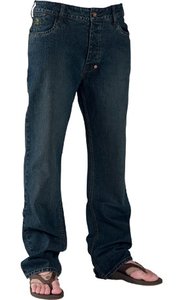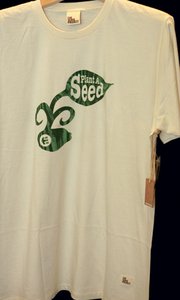Surfwear Turning Green
In 1996, Patagonia Inc. began using organic cotton to produce its entire sportswear line. At the time, the move seemed risky, but 10 years later, it is clear that the Ventura, Calif.–based company was onto something.
As Surfer magazine switches to printing on recycled paper and environmentally focused fund-raisers break donation records, it seems the surf industry has environment on the brain.
Now, eco-friendly apparel is making significant inroads in the surfwear industry. Etnies, Quiksilver, Ailin, Sector 9, Organika, Reef, Volcom and a slew of others have introduced green apparel.
“All the signs are there for the surf industry,” said Dino Sakelliou, design director for Reef. “We’re the ones in the water, so we feel [the effects of pollution]. We are in business to make money, but we want to do it in an environmentally conscious way,” Beginning with its Fall 2006 collections, Reef has introduced eco-friendly apparel in the form of organic cotton T-shirts, bamboo denim and linen sportswear.
“It’s our first foray into green apparel, so we’re taking baby steps. It’s a concerted effort,” Sakelliou said.
So far, green items make up 10 to 20 percent of Reef’s apparel offerings, and the brand is looking for ways to incorporate more every season. Hemp and bamboo are slowly claiming a greater share of the line, but Sakelliou said soy was Reef’s next big frontier. The company hopes to use soy-based fabrics in a big way for the Spring 2008 collection.
“We’ve got it in knits and wovens, and we’re experimenting with soy in denim,” he said. Boardshorts made of recycled materials and footwear made from sustainable materials are also in the works for Reef.
Quiksilver’s first green offering will hit stores later this year with a selection of organic cotton T-shirts. For Spring, the brand will produce organic knit and woven tops and limited-edition art T-shirts. Quiksilver hopes to eventually offer 100 percent organic denim and fleece. The brand also is introducing Q-TEC, a coating for technical garments that does not contain PVC or dioxins and uses no heavy metals in its production.
Eco-conscious girls can shop for Ailin’s cute swimwear, boardshorts and sportswear made of post-consumer, down-cycled fabric blends.
While still catering to surfing and skating’s cool kids and bad boys, Volcom makes an eco-friendly statement with Verde. The collection of T-shirts and sportswear is made from 100 percent organic cotton, vegetable dyes, organic stains, hemp and other low-impact production methods. It is, the company said, an easy way to protect the planet through conscientious consumerism.
After years of integrating sustainable green practices, Etnies introduced the Seed Project this month at the Action Sports Retailer Trade Expo in San Diego. The collection of men’s apparel and footwear made of sustainable and recyclable materials will debut for Spring 2007, with 1 percent of the proceeds from its sales going to benefit environmental organizations. Hemp, bamboo, cotton and vegetable dyes were finessed into straight-leg jeans, cargo shorts, polo shirts, outerwear, T-shirts and caps. Retailers seem to have responded favorably to Seed. “ASR was consistently busy, and the feedback was phenomenal, particularly on the new Etnies Seed Project,” said Don Brown, senior vice president of marketing for parent company Sole Technology.
Despite brands’ best efforts, not every part of the organic offerings is 100 percent eco-friendly. Dyes and packaging are not always green, but brands insist every little bit helps.
Surfwear’s greener focus does come at a price. Most surfwear manufacturers produce overseas, which makes sourcing and development a challenge. Import quotas can stall efforts, and hunting for resources claims time and funding. The added costs are passed along to the consumer, which hopefully sees the added value of environmentally friendly apparel.
“The price points on organic clothing are a bit higher,” said Reef’s Sakelliou. “But we think the consumer is willing to pay for it.”























